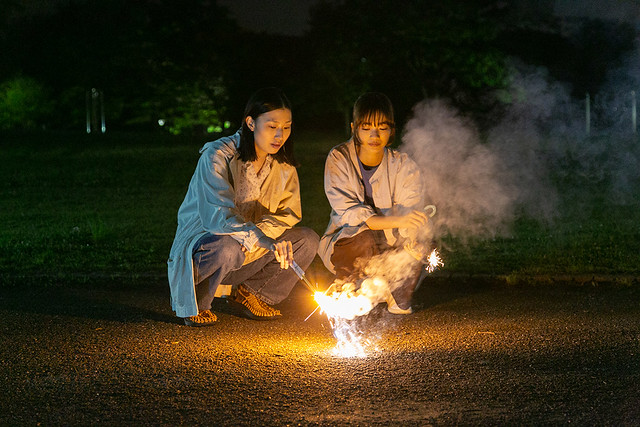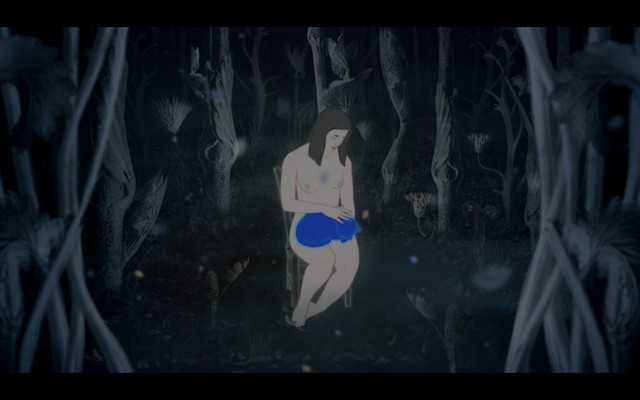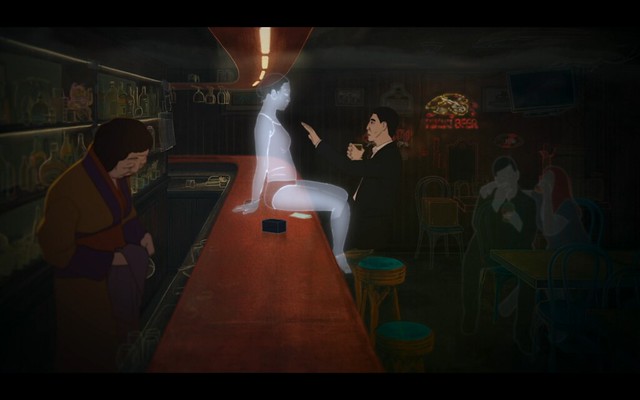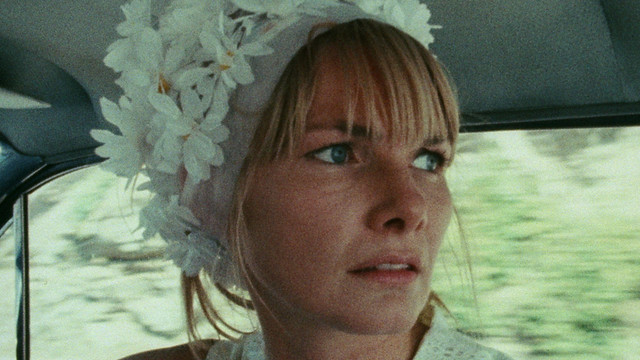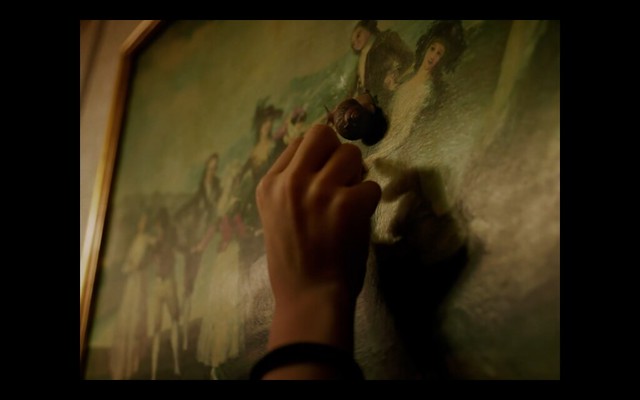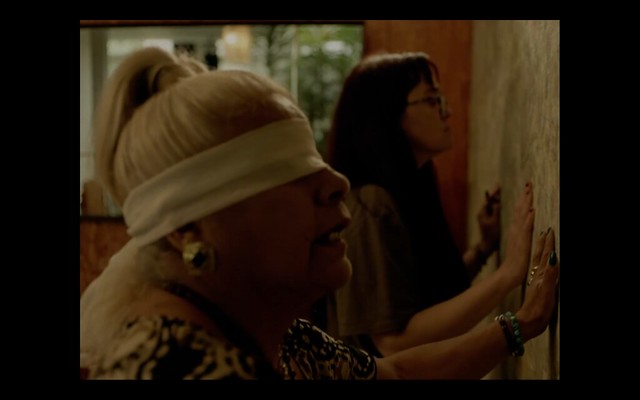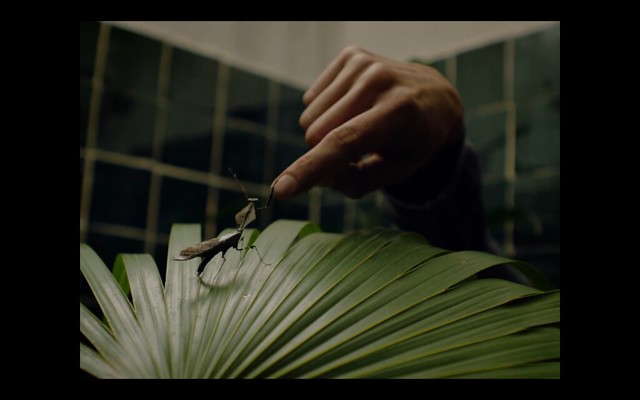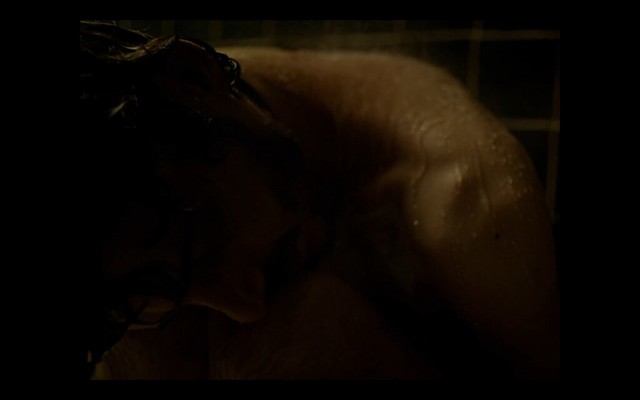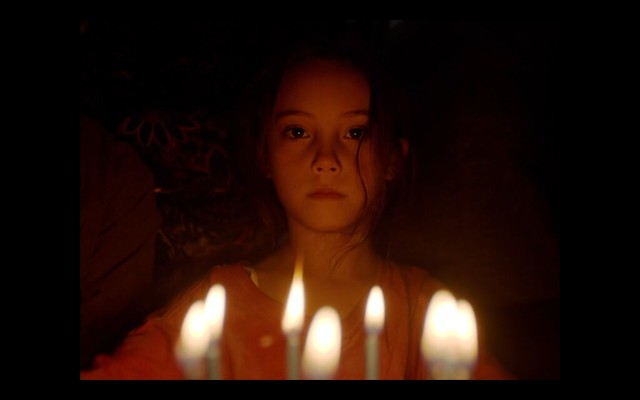 Hong Sang-soo, a Korean auteur who's singular minimalist filmmaking has comfortably found home in film festivals everywhere, again, presents two films at the NYFF this year unsurprisingly. In Our Day (had its premiere at Cannes) and In Water. Even clocking just over an hour, In Water will test audience's patience, and I expect there will be many walkouts. It's not because the film is inherently bad (I guess it depends on where you stand on Hong's often idiosyncratic films about not very much, but I digress), but because film is out of focus most of its running time. Expect frustrated audiences getting up and complaining to the ushers that there's something wrong with its projection throughout. But as the film plays out, there are spurts of scenes that are in focus, telling the audience that the rest of the film is intended to be out of focus. Now having made over thirty features, and no problem financing his microbudget films, Hong makes whatever he wants and however he wants. In Water, just like last year's The Novelist's Film, concerns artist's struggle to create and finding inspirations. It just happens to be all out of focus!
Hong Sang-soo, a Korean auteur who's singular minimalist filmmaking has comfortably found home in film festivals everywhere, again, presents two films at the NYFF this year unsurprisingly. In Our Day (had its premiere at Cannes) and In Water. Even clocking just over an hour, In Water will test audience's patience, and I expect there will be many walkouts. It's not because the film is inherently bad (I guess it depends on where you stand on Hong's often idiosyncratic films about not very much, but I digress), but because film is out of focus most of its running time. Expect frustrated audiences getting up and complaining to the ushers that there's something wrong with its projection throughout. But as the film plays out, there are spurts of scenes that are in focus, telling the audience that the rest of the film is intended to be out of focus. Now having made over thirty features, and no problem financing his microbudget films, Hong makes whatever he wants and however he wants. In Water, just like last year's The Novelist's Film, concerns artist's struggle to create and finding inspirations. It just happens to be all out of focus!
So, what does he try to convey in these fuzzy mostly static long shots? Does it reflect the young protagonist's creative block? Does it represent Hong's failing eyesight? We don't get to see three actors' faces most of the time. Does it symbolize the struggle to create is universal by making them sort of anonymous? It is a bold statement for sure.
Sung-mo (Shin Seok-ho, Introduction, Walk-up) is location scouting for his short film in an off-season southern seaside town with two friends, Sang-guk (Ha Seong-guk) and Namhee (Kim Seung-yun). It is revealed in their conversation that the former actor is trying out his directing and the two friends from college days are there to help out. The young filmmaker is putting his own money into this week-long excursion without a script. He is trying to find inspirations in the surroundings.
There had been some ideas that Sung-mo had for a project but he is less certain now if they will work. Sang-guk and Namhee are cordial enough to follow his leads, braving the cold, windy weather by the sea. While looking out over the cliff, while Namhee shows off her Taekwondo kicks to Sang-guk, Sung-mo notices a woman collecting trash on the rocky beach below. He goes down there to talk to her. She is volunteering to clean the beaches because she lives in the neighborhood.
Then there is a phone call Sung-mo makes to a friend (ex-girlfriend?) who is in Malaysia, voiced by Hong's partner/muse, Kim Min-hee. He asks her if he can use the song he composed for her birthday in the past to be featured in the film. He is trying to gather inspirations from everywhere.
Just like reflecting his own creative process, with In Water, Hong shows where he draws his inspirations from - the surroundings, past relationships, supportive friends, etc. But obviously, Sung-mo, a young man who is dabbling in directing for the first time, is not Hong, a seasoned filmmaker in his 60s. It ends with Sang-guk filming him walking into the sea and I burst out laughing, because that was how I ended my extremely pretentious student film that I made long ago. But at least mine was in focus!
Hong is being playful here within the margins of his minimalist aesthetics that he cultivated over the years. The film being out of focus might mean a lot of different things as I mentioned above, but knowing Hong through his films over the years, I don't think there's greater mystery, deep philosophical subtext, or puzzle box to solve in In Water. He is at a career stage where he can comfortably experiment with form, within the minimalistic confines of his filmic world. And I am loving it.
